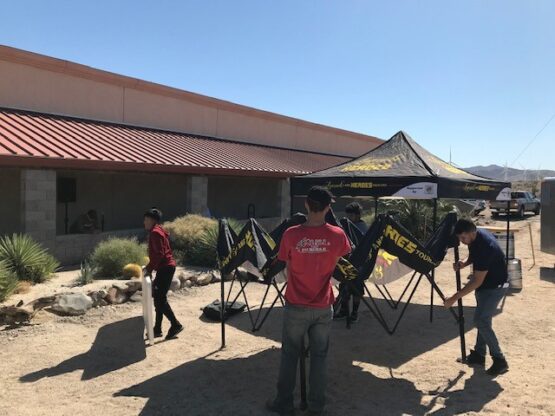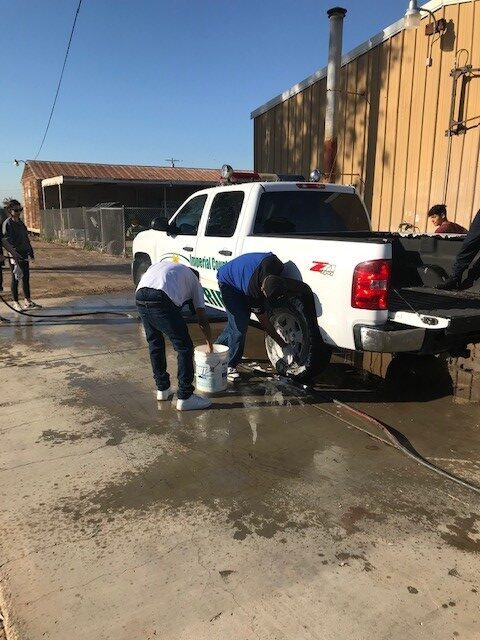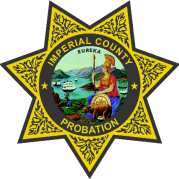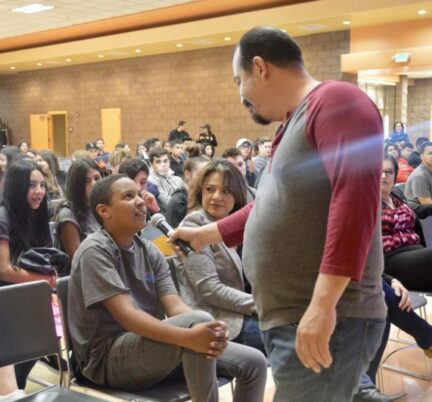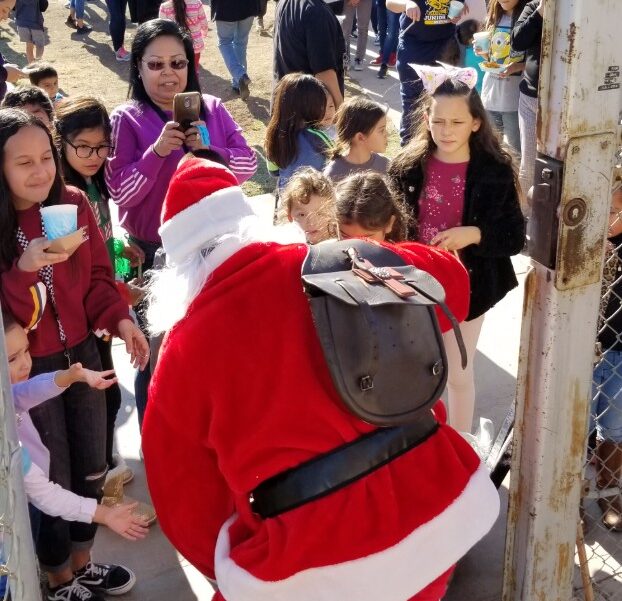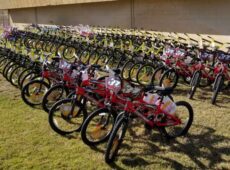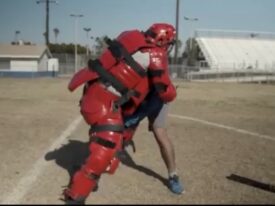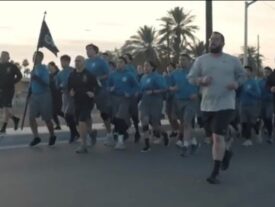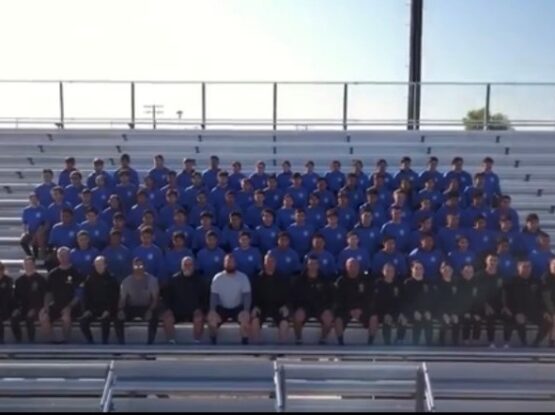Juvenile Services
Juvenile Services Information
The juvenile intake and investigations unit receives crime reports from all law enforcement agencies within our county’s jurisdiction. When considering various factors within the crime report, as well as various factors related to the youth, the intake unit makes a determination of screening out the referral, deferring the referral, or submitting the referral to the district attorney’s office for determination of prosecution.
When the probation department receives a petition for prosecution from the district attorney’s office, the case will be referred to an investigating probation officer to initiate court proceedings on the minor’s behalf and conduct an investigation related to the minor’s case. During the course of the probation officer’s investigation, information will be gathered from various sources.
Additionally, if applicable, the investigating probation officer will contact victims to obtain statements and determine restitution. Should the Court adjudicate the minor as a 602 Ward of the Court or place the minor on Deferred Entry of Judgement, the investigating probation officer will prepare a report for the Court to include recommendations they feel appropriate based on their investigation. As part of their investigation, the probation officer will conduct an interview with the minor and the minor’s family. Based on the investigator’s interview, they will complete a risk and needs assessment on the minor’s behalf.
The risk assessment will assist the investigating probation officer in determining an appropriate level of supervision for the minor and which community based programs will best service the minor during their term of probation. The needs assessment will assist the investigating probation officer in working with the minor and the minor’s family to create a comprehensive case plan for the minor. This case plan will include goals for the minor to work towards and complete during their term of probation.
When a minor is placed on probation, the Court sets the terms and conditions of probation for the minor as well as the length of their probation. After the minor is placed on probation, they will be assigned a supervising probation officer. During the minor’s term of probation, the supervising probation officer is responsible to ensure the minor meets their terms and conditions of probation as directed by the Court. Supervising probation officers continuously assess the minor’s risk level to ensure the officer targets the minor’s criminogenic needs and translate those risk factors into treatment objectives, and ultimately into relevant interventions and supervision practices. Additionally, case plans are reviewed and updated on an as needed basis to ensure the minor and their family have clear objectives and goals to work towards during the minor’s term of probation
If the youth has exhausted all community based services and they are unable to maintain themselves within the community in a safe manner, or should they pose a threat to the community, probation will recommend the youth continue with rehabilitative services in an out-of-home placement. When the minor is placed in an out-of-home placement, probation continues to supervise the minor throughout their term of placement. Placement Officers must adhere to Division 31 Regulations and Federal Guidelines which govern the supervision and care of minors ordered into out-of-home placement. Placement officers maintain continuous communication with the minor, the minor’s caregiver, the out-of-home placement, and the youth’s service providers. Placement Officers meet with the minor and the minor’s caregiver through face-to-face contact, at minimum, one time per month. Placement Officers continue to monitor and modify the minor’s case plan goals based on the needs and strengths of the minor and family. In general, minors complete their term of out-of-home placement when they have reached their case plan goals and have completed their placement program objectives
In certain instances, the Imperial County Probation Department receives referrals from local law enforcement agencies in reference to minors who have committed infraction traffic offenses. Designated traffic court probation officers screen these referrals to determine if traffic court would be in the best interest of the minor. Officers seek to identify the best resolution for each infraction based on the circumstances of each referral. Minors may be eligible for a form of community work service, fines, or alternative sanctions based on the outcome of their traffic court case.
Juvenile Hall
Juvenile Hall is for the reception and temporary care of detained minors. The facility manager and detention officers provide structure, support, and supervision to detained minors. The Imperial County Juvenile Hall meets the standards set by Title 15 such as requiring one staff member for every 10 minors in detention, discipline and security, ensure personal hygiene of minors, clean clothing and bedding, mental health and/or drug counseling, work training programs, recreation and exercise, and visitation with parents/guardians. Pursuant to Title 15, medical care is provided to all minors. In addition, a certified nurse is on site several hours each day. Juvenile hall offers mental health services, educational services, substance use disorder services, religious services, physical activity, and recreational services to youth while detained.
The Juvenile Hall Kitchen is staffed by one food supervisor and three cooks that plan and prepare meals based on specific nutritional requirements by the State of California. Staff also cook and prepare meals for children at the Betty Jo McNeece Receiving Home and the Evening Learning Center.
This institution is an equal opportunity provider.
Visiting Information & Hours:
Additional information can be found below:
Juvenile Fees
As of January 1, 2018, Senate Bill 190 prevents local agencies from charging certain fees to a youth and their parents or guardians for a youth’s involvement in the juvenile delinquency system on or after that date. Under Senate Bill (SB) 190, you will not be charged the following fees beginning on January 1, 2018:
Detention Fees
Food, clothing, personal supplies, or medical care in juvenile hall or any other detention facility.
Court-appointed Lawyer Fees
Public Defender or court-appointed lawyer
Electronic supervision and monitoring fees
- Ankle monitors or any other GPS tracking device
- However, you may still be liable for costs to replace a discarded or damaged device as ordered by the court
Probation and home supervision fees.
For the period of probation monitoring
Drug testing fees
Court-ordered drug testing and results
In addition, youth and their families may still be charged for:
- Restitution – Payments to crime victims.
- Restitution fines – Fixed amounts paid to a state restitution fund.
- Vehicle Code Fines
If you have additional questions about a bill or letter you have received from Imperial County about your child and the juvenile delinquency system, please contact your child’s attorney or the County department that sent the bill or letter.
As of September 30, 2020, SB-1290 vacates certain county-assessed or court-ordered costs imposed before January 1, 2018, for the parents or guardians of wards in specified circumstances, minors who were ordered to participate in drug and substance abuse testing, and adults who were 21 years of age and under at the time of their home detention.
To access the payment site please click the button below
Juvenile Programs and Services
During their term of probation, while on community supervision, some youth are referred to Rite Track and directed to participate in either the Evening Learning Center or the Mentoring and Tracking program. The Evening Learning Center (ELC) is an after school program designed to meet the needs of “at-risk” probation youth between the ages of 13 and 18 by providing these youth with the opportunity to engage in a number of pro-social and therapeutic interventions during peak times for high-risk teen behavior. Through these practices, Rite Track works to lower the recidivism risk of these young men and women and prevent their further involvement with the juvenile justice system. During program hours, youth engage in activities such as: Cognitive Behavioral Therapy, physical activity, drug and alcohol groups, counseling services, music/art classes and field trips.
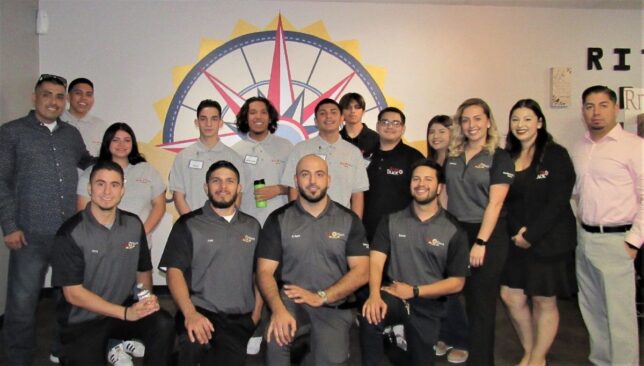
Rite Track’s Mentoring and Tracking Program is designed to assist at-risk youth between the ages of 13 to 18 that require additional community-based services in order to fulfill the terms of their probation or that need assistance accessing community-based services and diversion services. Each student assigned to the program is matched with an age-appropriate role model who mentors them through their program and is available to them twenty-four hours a day, seven days a week.

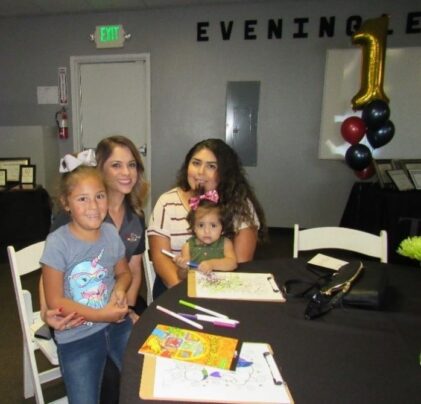
The Proud Parenting program operates out of the Rite Track center and provides opportunities for at-risk teen parents to participate in evidence-based, cognitive, therapeutic parenting classes. The program is designed to increase participants’ parenting success, while decreasing the risk of further or future involvement with the Juvenile Justice or CPS systems. Upon completion of the program, all participants receive a certificate of completion and a $50.00 gift card. All Proud Parenting participants complete a pre and post evaluation in order to measure their gained knowledge, stress reduction and overall program experience.
During their term of probation, while on community supervision, some youth are asked to participate in Probation’s Wraparound program. Wraparound is a form of supervision meant to preserve youth in their home as they receive intensive services. Wraparound services are utilized to reduce the risk of out-of-home placement and reduce recidivism by bringing individuals, agencies, and the community together to focus on meeting the needs of the child and family within their home. The Wraparound Officer works directly with service providers to link the minor and their family to necessary services. The Wraparound Officer maintains constant communication with the youth and their family to ensure they participate in rehabilitative programs and services, and to ensure the minor meets their terms and conditions of probation.

The Garden of Dreams was established at Imperial County Juvenile Hall in 2015. The Garden of Dreams facilitates lessons that include: creating positive relationships with the environment, creating an understanding of complex and diverse biological ecosystems, creating an understanding of where food comes from, developing experiences through hands-on work, and developing skills that are necessary to tend a garden from seed to harvest. Working in the garden helps youth create lifelong, positive relationships with the environment that foster environmental stewardship and provide a natural opportunity for youth to work across disciplines and across divisions. The circular process from planning and planting to tending and harvesting teaches the participating youth in a practical and visible way and instills in them the values of responsibility, caretaking, patience, and hard work.

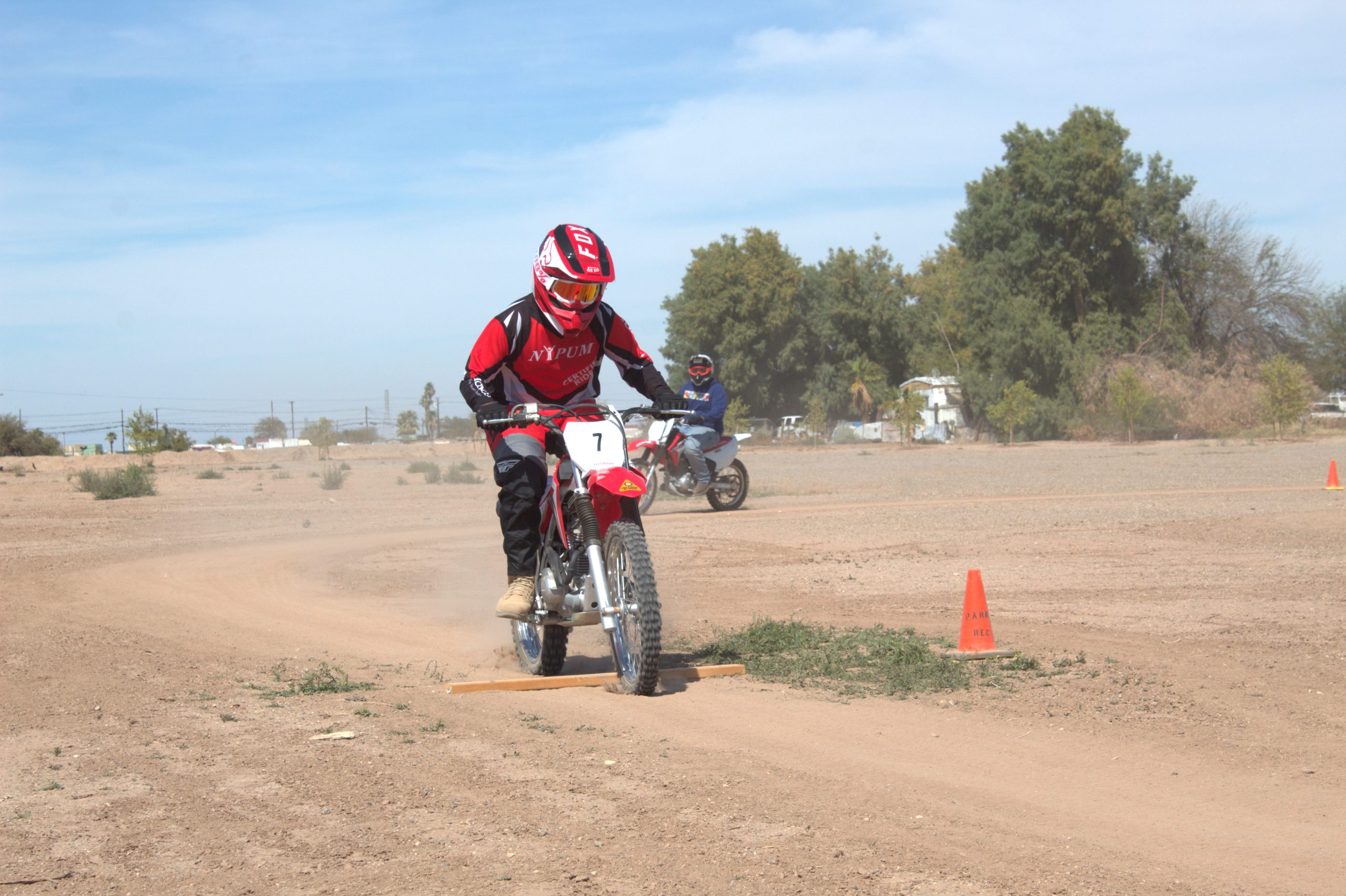
Previously known as the NYPUM Program, the Imperial County Probation Department partners with the City of El Centro Parks and Recreation Department to coordinate the Keeping Youth on Track Education Safety (KYOTES) program, an off-road highway program for boys and girls ages 10 through 18. The program tackles the problems of gangs, school truancy, and school behavior that youth in Imperial Valley can often face and offers youth the opportunity to develop self-esteem, create values for daily living, and find a sense of belonging and companionship through minibike related activities. The KYOTES program is able to use minibikes to attract youth to outdoor activities and provides incentives to improve their lifestyle through the excitement of riding. Youth learn teamwork, fair play, trust, respect for property,
discipline and other skills through trail riding
The Imperial County Probation Department partners with the Imperial Valley Desert Museum and their Artist-In-Residence Program to provide youth within juvenile hall educational lessons where they can learn about traditional culture and participate in art projects throughout the year. The classes and workshops were held within the Imperial County Juvenile Hall and also at the Desert Museum site located in Ocotillo, California.

Juvenile Services Plans & Initiatives
Youth Services Events and Outreach
Youth Summit
The Imperial County Youth Summit is an annual summit hosted by the Imperial County Probation Department, in conjunction with the Imperial County Juvenile Justice Coordinating Council. Each year, a keynote speaker shares their motivational story with the youth in attendance, and their families, in an effort to inspire at-risk youth to make positive changes in their life. Initially, the targeted population for the Youth Summit was high-risk youth on probation; however, it has gradually extended to all youth on probation, youth in foster care under both the delinquency and dependency jurisdiction, as well as local middle and high school students within Imperial County who are not under any type of court jurisdiction. In addition to hearing the keynote speaker’s message, the youth and their families are provided lunch and participate in raffle prizes. During the Youth Summit, various booths, which are hosted by community-based organizations, are set up in an effort to assist and educate the youth and their families as to available resources within our community.
Conrad Harrison Annual
Bike Giveaway
Every year, the Imperial County Probation Department works in conjunction with the Centinela Citizens Advisory Committee to host our annual holiday bike giveaway. The purpose of the event is to identify families who may not have the means to purchase a bicycle for their child. Approximately 100 new bicycles are provided to children in need every year. During this event, school aged children arrive at the probation department and are greeted by Santa Claus. These children are paired with a probation officer who will accompany the child during the event. Probation officers assist the children in selecting their desired bicycle and obtaining a new helmet. Children are assisted by inmates from Centinela State Prison in making any needed adjustments to their bicycle after it is selected. Additionally, the El Centro Police Department is on-site to assist with registering all bikes. In recent years, the Imperial County Library has participated in the event and handed out books to all participants. The probation department sets up a grass area for children to test their new bicycles. After children secure their bicycles, they enjoy music from the on-site DJ, lunch prepared and provided by Geo Reentry Services, and the ability to take pictures with Santa.
Career Days
The Imperial County Probation Department participates in numerous career day events throughout the year, in which officers provide a presentation to participants and also host booths at the events. Officers seek to interact with participants in an effort to educate them on the job description and job requirements of a probation officer. Probation officers enjoy answering questions and providing guidance to participants during these events. The Probation department participates in career days at elementary schools, middle schools, high schools and colleges, as well as community based organizations.
Law Enforcement Academy Mentor & Police Program
The Law Enforcement Academy prepares high school students with a broad-based foundational knowledge in careers that involve Law Enforcement and Legal Services.
Through the Imperial Valley Regional Occupational Program, the Imperial County Probation Department participates in a mentorship program for students enrolled in the Law Enforcement Academy. Officers from the probation department serve as mentors for these students throughout their high school term. Every month, the probation department is on site at a local high school and interacts with Law Enforcement Academy students to provide them with information related to a career in probation and answer any questions they may have.
Additionally, the Probation Department assists with the Law Enforcement Academy’s annual mock police academy. This week-long academy familiarizes students with aspects of law enforcement to include leadership skills, communication skills and physical fitness skills. Officers from the probation department assist in motivating youth throughout the academy and participate alongside the youth during the physical fitness portion of the academy.
AB12 Recognition Ceremony
The Imperial County Probation Department hosts an annual Assembly Bill 12 (AB12) Recognition Ceremony for Non-Minor Dependents (NMD) in an effort to recognize the accomplishments of former foster youth who have transitioned from delinquency jurisdiction to Non-Minor Dependent status. AB12 allows fostercare to extend beyond the age of 18 and continue until the age of 21. Probation officers meet with NMDs through face-to-face contact each month in an effort to link them to services, provide them with guidance and assist them in working towards their goals. During the AB12 Recognition Ceremony, all NMD’s are served dinner and recognized on an individual basis. Additionally, NMD’s who have accomplished significant goals, or reached major milestones, are rewarded with items such as laptops and gift cards. Not only is the AB12 Recognition Ceremony held to acknowledge the youth's achievements, it is the intent of the probation department that the ceremony build camaraderie among NMD’s and officers and provide additional resources and support among our NMD youth.
Imperial County "Drug Store" Event
The Imperial County “Drug Store” is an annual event in which the probation department, in collaboration with other county agencies, work together to raise awareness of drug abuse and its consequences. The goal of this event is to prevent our youth from engaging in illegal substance use.
Every year during Red Ribbon Week, sixth grade classes throughout Imperial County attend the “Drug Store” on their designated day. The “Drug Store” is a presentation of seven skits related to drug use and its consequences; various county agencies play a role in the skits. The probation department plays a vital role in the skits while describing a youth’s time in juvenile hall as well as describing the juvenile court process.

Shop with a Cop
Every year, officers from the Imperial County Probation Department participate in Imperial County’s annual Shop with a Cop event. During this event, officers from multiple agencies within Imperial County are partnered with local children in need who have been selected by local agencies.
Probation officers enjoy lunch with the children before escorting them in a motorcade, complete with lights and sirens, to Target for an morning of shopping. While at Target, children are provided with a gift card, and assisted by the probation officer, to complete some holiday shopping. Not only does this event provide a fun filled day for a number of children in need throughout the county, it also assists in creating positive relationships with law enforcement.
Youth Services Frequently Asked Questions
The Probation Department serves the community and the Juvenile Court by providing intake, investigation, and supervision services to youths. Deputy Probation Officers will supervise youths that represent the greatest risk for reoffending, and provide them with interventions designed to reduce delinquent behavior. Deputy Probation Officers regularly utilize the services of community organizations in these efforts and work closely with the families of youths. Deputy Probation Officers will provide a variety of reports for the Juvenile Court's consideration at different hearings. These reports help Judges and other persons assess a youth's behavior and compliance with conditions of probation.
This is a condition of probation often ordered by the Juvenile Court which allows a Deputy Probation Officer or law enforcement officer to search a youth's person, residence, or personal belongings, as described in the court order, without having probable cause, obtaining a search warrant or gaining permission. Items discovered during a search may be seized and held as evidence if they are prohibited by a condition of probation. Those items may be used as evidence in a probation violation or to sustain a new law violation. A violation can also result if a youth who has been ordered by the court to "submit to search and seizure" refuses to comply with that order.
Juveniles are "adjudicated," not convicted, and therefore do not have to report "convictions." However, Juveniles tried as adults are required to report convictions.
Juvenile Probation matters are confidential, though victims will be provided with relevant information as provided by law.
Law enforcement will provide supporting documents regarding the citation to the Probation Department. Probation will investigate the matter and can assess how best to handle the matter. This includes informal handling without referral to the District Attorney's Office or formal handling before the Juvenile Court. In either case you and your child will be notified and advised of what to expect.
Law enforcement agencies may arrest a youth for a law violation and bring the youth to the Juvenile Hall. Once there, the youth may be released to their parents if it is determined detention is not necessary. If detention is necessary and the youth is not released, the matter is referred to the District Attorney's Office. That office will decide if a petition alleging the law violation should be filed. If one is not filed, the youth will be released immediately to their parent. Otherwise, a hearing will be held within 2-3 Court days regarding the allegations. The parent will be notified about Court dates and times. The initial Court hearing will determine if continued detention is necessary. The Court may then request Probation to conduct an investigation and provide a recommendation as to the disposition of your child's case.
Parents and certain other persons specified by law may review and obtain copies of juvenile case file information.
Law enforcement referrals are initially processed by an Intake Officer. Depending on the circumstances, the matter may be referred to another agency, processed within the Probation Department, or referred to the Juvenile Court. If the matter is referred to the Juvenile Court, and the Court orders the Probation Department to complete a report, an Investigations Officer will be assigned. Once that investigation is complete, and the Court places a youth under Probation supervision, a Field Supervision Officer will be assigned. This Field Supervision Officer will supervise the youth and monitor his or her compliance with the conditions of Probation.
Please bring the following items to your interview:
- A copy of your child’s Birth Certificate
- A copy of your child’s Social Security Card
- A copy of your child’s health insurance card
- A copy of your child’s immunization record
- A letter from your tribal authority (if applicable)
Field Supervision Questions - Minors Who are on Probation
The Imperial County Probation Department recommends that you contact your local law enforcement agency and then notify the youth’s Deputy Probation Officer (DPO). The assigned DPO may file a petition alleging the child has violated Probation terms and conditions and request that a warrant be issued for the youth If the youth is a ward of the Court.
Since attendance at school is normally a condition of probation, the assigned DPO may be able to intervene and address school attendance issues, but schools remain the best resource for addressing truancy issues.
The assigned DPO will contact the youth and his or her parents within one or two weeks by phone or mail once the youth's case is assigned to a DPO and an appointment will then be set to meet in person.
Probation grants for youth vary in length based on a variety of factors and there is generally no set time frame. Some youth can be on probation for as little as six months or remain on probation for a year or longer.
The case may be transferred to the other county for supervision, but parents of the youth should discuss any plans to move to another county with the assigned DPO.
Termination of probation can occur at any time based on the nature of the case. In some cases, review dates are set to determine if termination of probation is appropriate.
Sealing
Instructions for sealing juvenile records are provided to a youth when the Probation Department receives an application for sealing. The Probation Department will provide the necessary packet to aa youth and upon the completion of that packet the request for sealing will be processed with the Juvenile Court. A photograph identification card is required.
A person can contact the Imperial County Probation, a city police agency, Imperial County Sheriff's Office or the Superior Court. If the Probation Department has no record, the person is referred to the agency that they believe cited/arrested them. A youth's record will not be given over the telephone because of the need to provide proof of identity. A person may pick up the application in person and or they may request an application be mailed to them.
A court hearing may be held if any of the involved agencies object to the sealing or if the youth and or their attorney request a hearing. The Superior court calendars the matter for a hearing. Notification of the hearing is made by the courts. It is recommended that the youth and or their attorney be present for the hearing.
- Youth may use the Public Defender's Office for assistance if they were previously represented by the Public Defender's Office. Occasionally a youth's private attorney has requested the sealing information and forms and provided assistance to the client at no charge.
Youth Community Work Service Program
The community work service program is offered to select juvenile offenders that meet program criteria. Youth accepted into the program must complete a total of fifty (50) community work service hours in lieu of fines, or as an alternative to court intervention. Additionally, at the completion of their community work service program commitment, youth are required to submit an essay that details what they have learned from their experience. The probation department organizes the work sites and supervises attendees. The community work service program offers youth an opportunity to improve our community through unpaid work. The youth’s work benefits local cities, neighborhoods, charitable organizations, schools and other agencies throughout the Imperial Valley.
